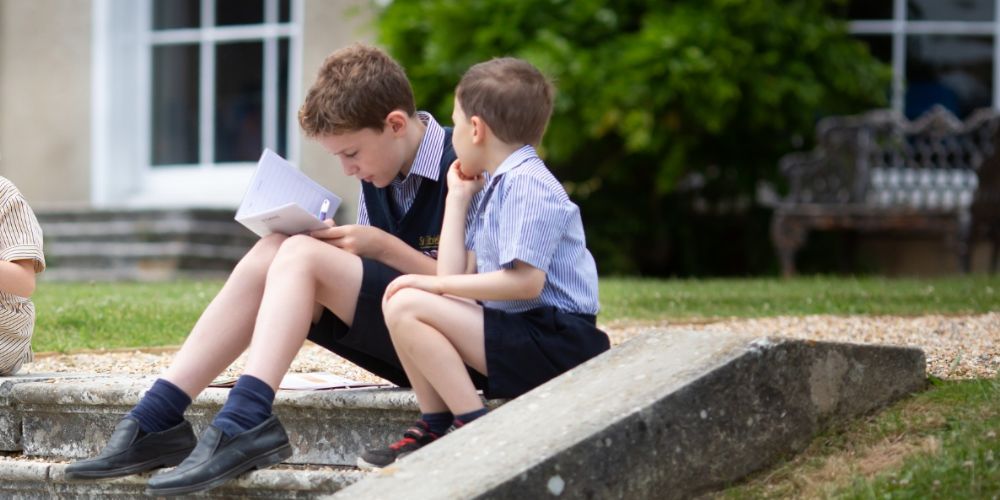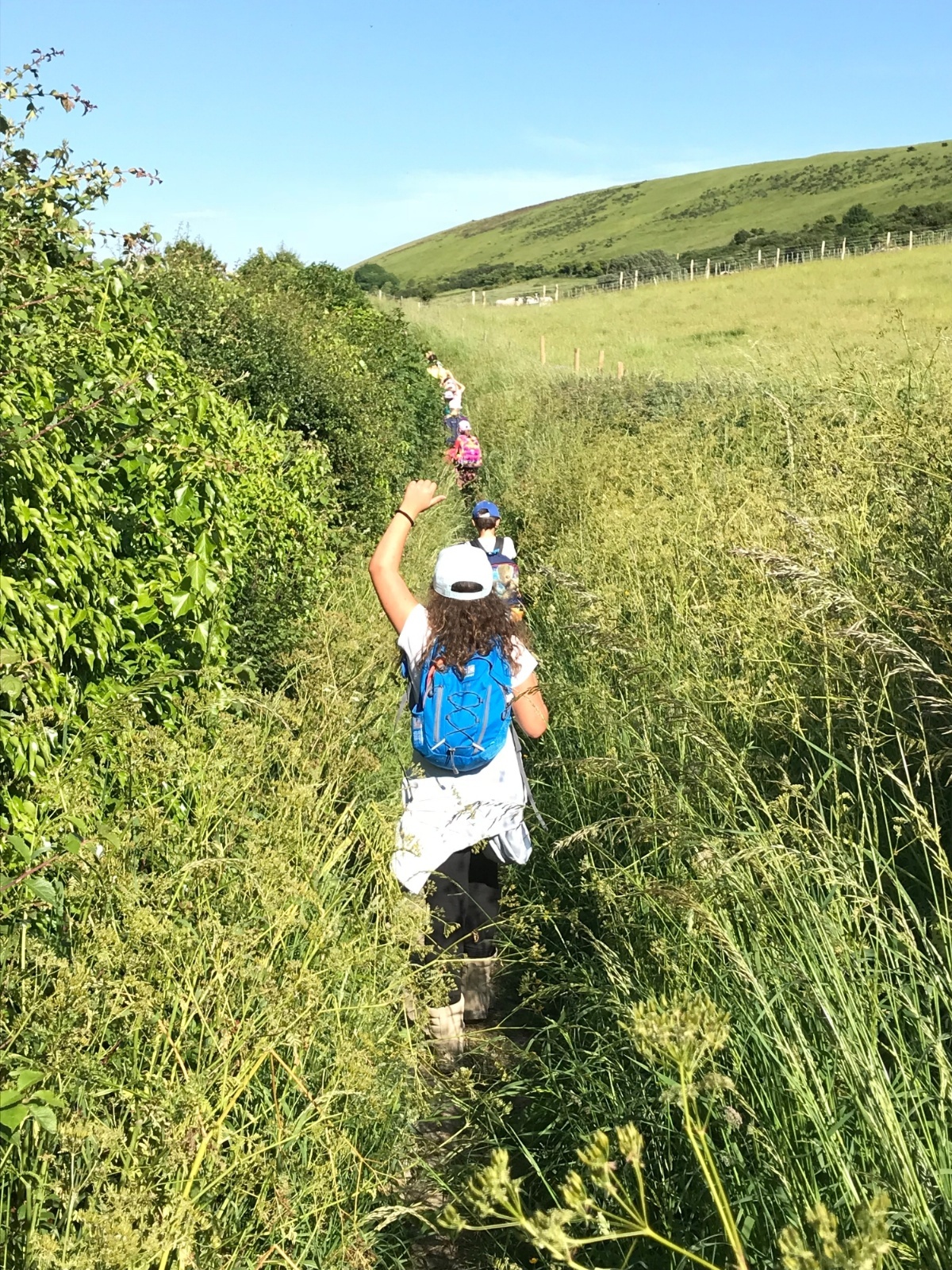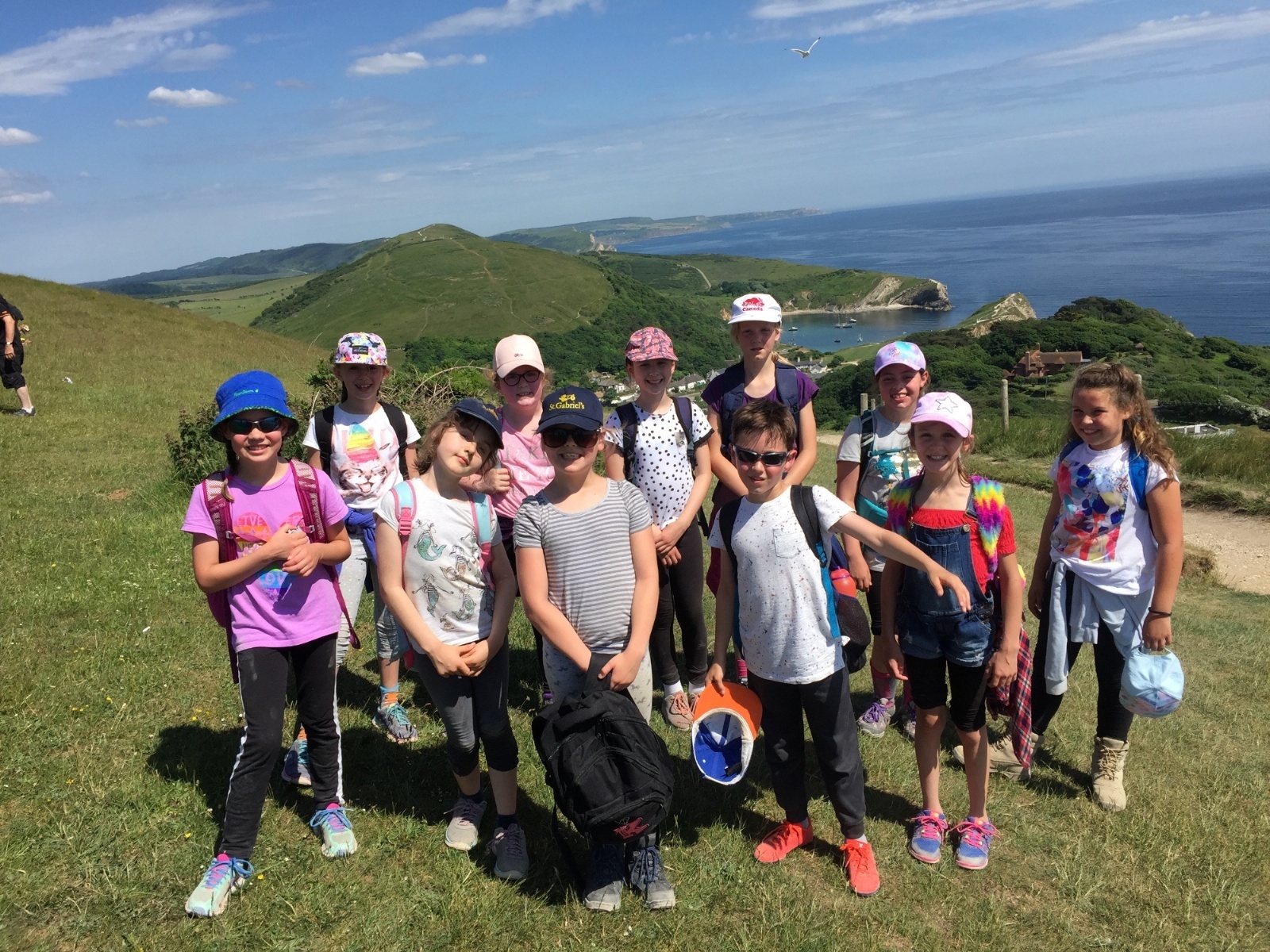Subjects
As children progress through the Junior School they move from being taught mainly by one teacher for all subjects to being taught by specialists in many subjects. Staff understand each individual pupil's strengths and give additional support as and when it is needed. Your child will move on to Senior School as a confident, resilient, articulate and resourceful young person.
Art
Art in the Junior School offers a rich and broad experience, providing pupils with the opportunity to work with a wide range of materials and media.
The curriculum is designed to progress the pupils' skills over their Junior School years and allows them to develop an interest and enthusiasm for art. From the study of famous artists to the exploration of individual ideas and themes, the children's creativity and originality is encouraged.
Computing
In computing we recognise the importance of equipping our pupils with the digital skills they need to thrive in an ever-evolving technological world. Our computing curriculum is built around three core strands: Computer Science, Information Technology, and Digital Literacy.
In Computer Science, pupils develop their computational thinking through problem-solving activities involving algorithms, coding, sequence, selection, and iteration using a range of platforms, including Scratch. They also explore key concepts such as abstraction, decomposition, and debugging as they design and build applications that aim to benefit their community and the wider world.
In Information Technology, pupils use digital tools to create and manipulate digital media, produce digital art, and handle data effectively. They learn to express their ideas creatively, harnessing technology to support innovation across the curriculum.
Digital Literacy ensures our pupils are confident and responsible users of technology. They learn about e-safety, online behaviour, and how to critically evaluate online information during research.
Across all areas, pupils are encouraged to communicate clearly, collaborate effectively, and use technology as a tool to enhance their learning in all subjects. Our ultimate aim is to foster confident, creative, and capable digital citizens who can apply their knowledge meaningfully in school, at home, and in the workplace.
Dance
Dance is a vibrant and thriving subject within the Junior School curriculum and is taught by a specialist dance teacher. It is taught once a week in Reception—Year 5 as a single subject and through Performing Arts in Year 6.
The emphasis in dance is to develop pupils’ self-confidence, creative and imaginative physical and thinking skills and an understanding and appreciation of dance as an art form. It is designed to engage boys and girls, through an exciting and fun array of dance styles and techniques, to develop their creative movement ideas and enhance their confidence when performing in front of others. Dance throughout the Junior School is underpinned by the three elements of dance: choreography, performance and appreciation.
The highlight for many dance enthusiasts is the biennial dance showcase. This lively and exciting event celebrates the dancing achievements of pupils from Year 3 upwards and provides an opportunity for Junior School pupils to experience the thrill of a live performance.
There is an array of dance clubs, from ballet to creative modern dance club, for pupils who want to extend their learning beyond the curriculum.
Dance is taught in a specialist dance studio with a fully sprung professional dance floor and large mirrors.
Design & Technology
Our aim, through hands on experience and practical applications, is to give pupils an understanding of the world around them and to foster the natural curiosity that they exhibit towards products, processes and how everyday items are designed. The questions ‘Why? What? How? and Where?’ are ones we never tire of hearing!
From Year 3, specialist staff teach pupils how to approach a design problem by analysing a task, researching and designing for a specific need. They have the opportunity to make individual products using a variety of workshop tools and equipment, including CAD/CAM.
Moving through to Years 4—6, pupils undertake a number of practical design and make challenges, which encourage them to think independently, work safely, create products of high quality and demonstrate individual creative flair.
Pupils gain knowledge of a wide range of material and ingredient properties and of the manufacturing techniques and processes available in school, including computer-aided design and manufacturing applications.
The emphasis is on learning through practical experience and applying knowledge to solve problems creatively, which subsequently builds confidence and an appetite for challenge!Drama
Drama is vibrant, exciting and non-competitive and aims to enhance confidence and self-esteem; encourage creativity and imagination; develop concentration and listening skills as well as theatre and performance.
Throughout the Junior School we offer a wide range of activities that allow the students to explore our creative world. In Reception—Year 2 pupils have the opportunity to explore drama through emotion, learn the concept of storytelling through movement and are introduced to characterisation using a range of key stories and poems. Throughout the year, pupils are involved in a selection of mini performances and workshops, as well as the Christmas Nativity performed using set, costume and music in our 120 seater theatre.
Pupils in Year 3—Year 6 continue their drama journey by exploring a range of key theatrical skills that enable their understanding of the theatrical process. Pupils delve into a range of topics through cross-curricular links with subjects such as History, Music and English. Pupils are invited to attend various drama clubs led by Senior School scholars and can sign up for LAMDA lessons (Year 4 upwards) as part of our extra-curricular offering, taking part in yearly examinations. In Year 6, pupils combine all their skills to produce an end of year musical. These have included, Matilda, Charlie and the Chocolate Factory, Oliver, Madagascar Jr and Shrek Jr. These shows allow pupils to share their progress and combine their learning and is a wonderful way of waving our Year 6 pupils onto the next stage of their learning pathway.
We aim to offer a safe environment for all pupils to explore social and cultural issues, enabling them to develop empathy through characterisation and storytelling. Drama helps pupils find their creative voice so they can develop into confident skilled communicators.
E-learning
St Gabriel's is committed to providing an educational experience which prepares pupils for the use of technology to create, collaborate and communicate.
From Year 3 pupils are provided with a school iPad. Although the iPad remains the property of the school, pupils may take it home and install appropriate apps. Pupils are expected to bring their charged iPad to school every day in line with the iPad Acceptable Use Policy. Junior School staff are always on hand to resolve any technical issues. Pupils in Year 2 have access to a class set of iPads in the classroom.
As pupils move through the Junior School, their use of digital learning across the curriculum increases. Pupils will be taught how to use OneNote and to organise their folders to contain work, which is available to view alongside their book-based work.
English
The English Department aim to share their passion for English to inspire a lifelong love of language and literature amongst all of our children. Through developing the four fundamental skills of reading, writing, speaking and listening, as well as nurturing creativity and encouraging critical thinking, we aim for our children to develop into effective and confident communicators. Guided by the National Curriculum content, teachers deliver a broad and engaging curriculum, which covers a diverse range of texts across different times and cultures, to give our children a foundation which will inspire their own independent writing for a range of audiences and purposes
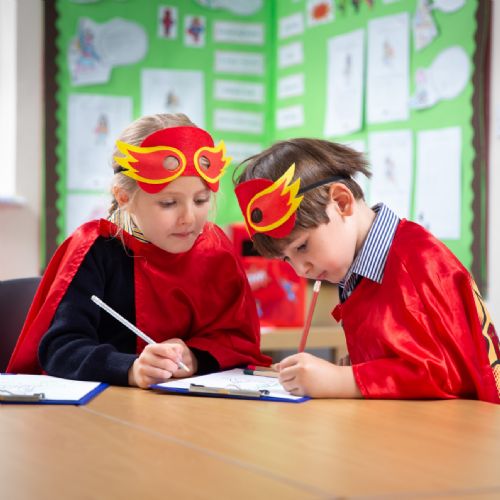
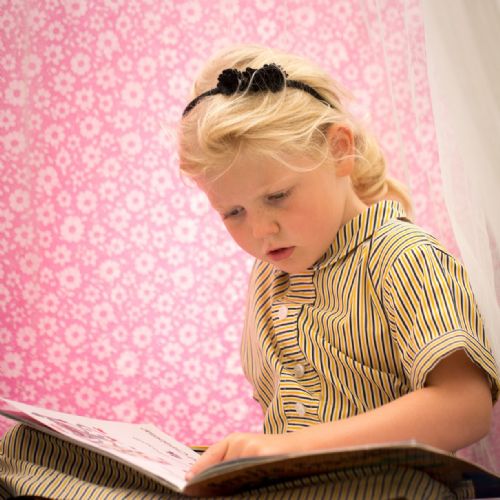
In Year 1 and Year 2, the teaching of phonics is delivered using The Jolly Phonics scheme. Fundamental grammatical and spelling rules are discretely taught and constantly encouraged and developed through the children's creative writing. Children are introduced to a pre-cursive script for handwriting in Reception and are encouraged to practice forming their letters correctly before moving onto cursive, joined handwriting. In Key Stage 1, our children are introduced to a wide range of genres across poetry, narrative and non-fiction, and this breadth of texts increases as children progress through the school. Creative writing is inspired through role play and storytelling and is extensively modelled by staff alongside an exploration of the interactive Wordsmith scheme resources.
In Year 3 to Year 6, teachers also have access to the Wordsmith scheme. Produced in conjunction with some leading literacy figures like Michael Rosen, and endorsed by Michael Morpurgo, it has been designed to ignite children’s interest in reading, communication and language. Underpinned by four core principles of contextualised grammar, purpose and audience, varied whole texts and talk for writing, pupils gain a broad and stimulating experience of literature and language. Although we have a scheme available, teachers are encouraged to prepare alternative units of work, and lessons, in order to adapt to the needs, experiences and passions of their class, with activities designed to be both challenging and inclusive. Teachers have high expectations of pupil achievement and focus on meeting individual needs, working alongside the Individual Needs Department, where necessary.
In addition to improving literacy skills, and covering National Curriculum content, children are actively encouraged to pursue their own creative journeys and individual talents and interests. Drama, games, role play, debates, and performing and presenting to others enrich, and contribute to, the children’s wider experience of the literary world around us, ensuring that promoting English for pleasure is as important as English for success.
In addition to the curriculum, there is an exciting range of enrichment activities available in the Junior School including clubs, trips, visiting speakers and competitions. In the Autumn Term, children write a story for our ‘Once Upon A Sentence’ short story competition. They are given a sentence that must be included somewhere in their story – but aside from that are creatively set free. Equally open, is our Spring Term, ’Magpie Poetry Competition’, where children choose a pre-existing poem to ‘magpie’ something from before crafting their own new poem. National literary events like World Book Day and National Shakespeare Week are marked as a whole school and also present wonderful opportunities to celebrate the progress, academically and creatively, that our children make.
Geography
We inspire and create curiosity for the world through investigation, teaching about diverse places, people, the natural world and its resources. Pupils explore both physical and human geography, the shaping of our landscape, the diversity of different cultures and how we look after our world. By reference to sustainability and to our carbon footprint, they grow to respect both the local and global environment.
History
Children gain the skills and confidence to evaluate major world events and developments through learning about the past. They gain an understanding of the challenges of people’s lives in the past; the causes of social and political change; the diversity of societies; and the impact of the past on the present, with particular reference to British history and values. We teach children to ask insightful questions, to think critically, evaluate evidence, and develop perspective. We encourage them to debate topics and form judgements. History is brought alive and made inspiring by the use of original artefact boxes in each year. We do not confine our lessons to the classroom; we make use of the school’s grounds and further enrich learning with visits to local sites of historical interest and museums, including Butser Ancient Farm, Reading Museum, Winchester Cathedral, Ufton Court and the Ashmolean Museum.
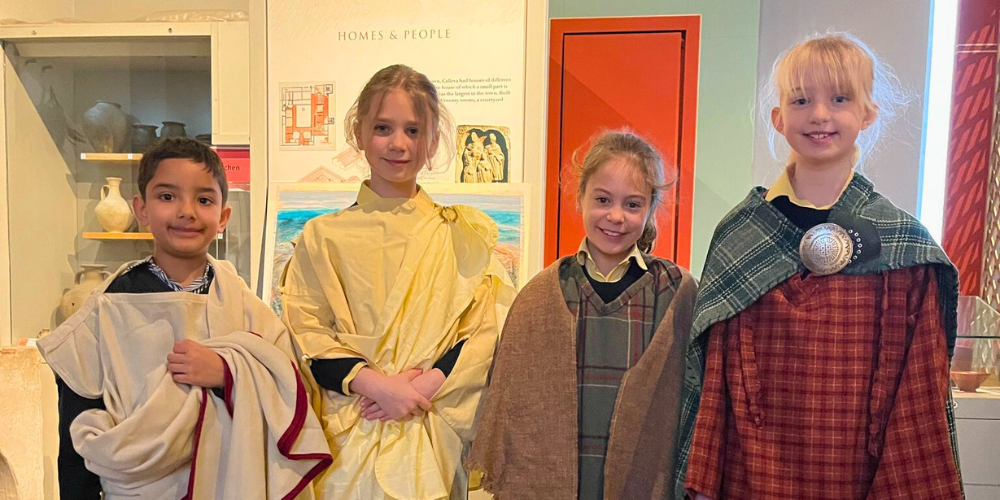
Mathematics
Mathematics follows the structure of the National Curriculum with the aim to develop the three key areas of fluency, mathematical reasoning and problem solving. Pupils will acquire a breadth of skills and knowledge, learn to communicate and explain their ideas clearly using subject-specific language and apply their understanding to solve problems of a practical and investigative nature. Differentiated teaching ensures pupils of all abilities make progress and the appropriate grouping of children is given careful consideration. Activities are sequenced to ensure progression, which may be by means of direct teaching to the class, small group tasks or targeted support with individuals. A wide range of resources is available to ensure concepts are embedded securely, often following a concrete-pictorial-abstract approach to enable all pupils to reach their mathematical potential.
Provision for our most able pupils is evident both within the classroom, through extension tasks, as well as through enrichment opportunities. Selected Key Stage 2 pupils take part in our annual Maths Challenge event, competing against teams from other local schools. Children are entered into national competitions such as The First Maths Challenge for Year 3 and Year 4 (8 & 9 year olds) and the Primary Maths Challenge for Year 5 and Year 6 (10 & 11 year olds).
From Year 1, pupils are provided with school/home access to DoodleMaths and online times table resources, which consolidate learning and embed key knowledge through individualised tasks. Parents are able to log in to check their child’s progress. Personal achievements are celebrated regularly in assemblies and the weekly newsletter.
Modern Foreign Languages
All children in the Junior School have weekly lessons in French. In Year 1 and Year 2, pupils learn to greet each other and to communicate using songs, rhymes and role play.
The emphasis throughout is on promoting self-confidence when speaking, listening and reading in the foreign language. Writing skills are built up progressively as the children move through the Junior School MFL curriculum.
Music
The Music Department provides an immersive and practical learning experience that develops confidence, builds self-esteem and nurtures individual wellbeing whilst developing firm foundations in musical knowledge and skills.
Children learn through listening, exploring, composing and performing using their voice, tuned and untuned percussion, keyboards, music technology and a range of orchestral instruments as they progress through the school.
Singing is at the heart of the musical experience in the Junior School with weekly singing assemblies, and a range of choirs and vocal groups, to support ongoing musical progression in lessons. The curriculum is designed to develop confidence and creativity with the elements of music: pitch, rhythm, tempo, texture, dynamic, structure, duration and timbre. Children are encouraged to explore a wide range of musical styles and music from other cultures, including music from their own heritage.
Children are supported to develop:
- A good understanding of vocal health and strong foundations in using their voice for singing
- A secure sense of pulse and rhythm
- Control and creativity when playing tuned and untuned percussion
- A broad understanding of the instruments of band and orchestral instruments
- Confidence reading musical notation in treble clef (and other notations eg. TAB, chord charts, graphic scores)
- Skills in listening, reflecting and analysing music
Children in Year 1 to Year 6 also take part in a five week instrumental project as part of their class lessons, where they learn to play the recorder, violin, chalumeau, pBone and ukulele. These projects are a wonderful opportunity for children to enjoy learning and performing together and act as an ideal entry point for taking up individual music lessons to further develop their talents.
Please contact cwoodhouse@stgabriels.co.uk for further information about individual music lessons, trial music lessons and details about music clubs and activities.
Outdoor Education
With such extensive grounds, including mixed woodland, a lake, streams and meadows, we are always looking for opportunities to take pupils’ learning outside. Teachers plan cross-curricular activities to make the most of the natural habitats that have developed within the 33 acres of Capability Brown parkland.
We also provide weekly lessons in Outdoor Education. These sessions encourage children to explore and care for the rich flora and fauna that is all around them, as well as to develop personal and social skills through activities such as fire lighting, shelter building, knot tying and wide games. Clear skills progression in Outdoor Education allows children to consolidate and build upon previous learning.
Children love to take their learning outdoors and, as a result, often get a little wet and muddy! For these reasons, we ask that pupils have waterproofs and wellies in school so that their access to these activities can be all year-round.
Physical Education
Sport at St Gabriel’s gives pupils the opportunity to be part of a team, learn about themselves under pressure and challenge their body physically and mentally. Sport is far more than what happens on the sports field or court. Sport instills lifelong values into our pupils such as confidence, discipline, respect, decision-making skills, a strong work ethic as well as leadership and management skills. We understand that a positive sporting experience at school encourages a lifelong love for sport and exercise.
We offer a broad range of sport through games afternoons, PE lessons and our co-curricular provision, which includes team training and individual sports such as tennis, judo and gymnastics. Pupils play in competitive fixtures from Year 3 through to Year 13 and there is an expectation that if selected for a fixture, pupils are available to play and represent the school. The major team sports we focus onare hockey, netball, rugby, football and cricket as well as tennis and athletics in the Summer Term.
The success of our sporting programme relies on the involvement of as many pupils as possible, not just the school’s best athletes. Achieving high levels of participation in both team and individual sports is essential for the wellbeing and health of all our pupils. Whether you are an aspiring athlete on our sport scholarship programme or playing sport recreationally for fun and enjoyment, the Sports Department look forward to inspiring and motivating our pupils to thrive, flourish and gain confidence through sport and physical activity.
PSHE (Personal, Social & Health Education)
The school has a strong commitment to its systems for pastoral care. The academic and personal development of each pupil is monitored closely.
Through the Six Pillars of Character, children are taught values such as respect, trustworthiness, caring for others, citizenship, fairness and responsibility. These values are reinforced in all areas of school life.
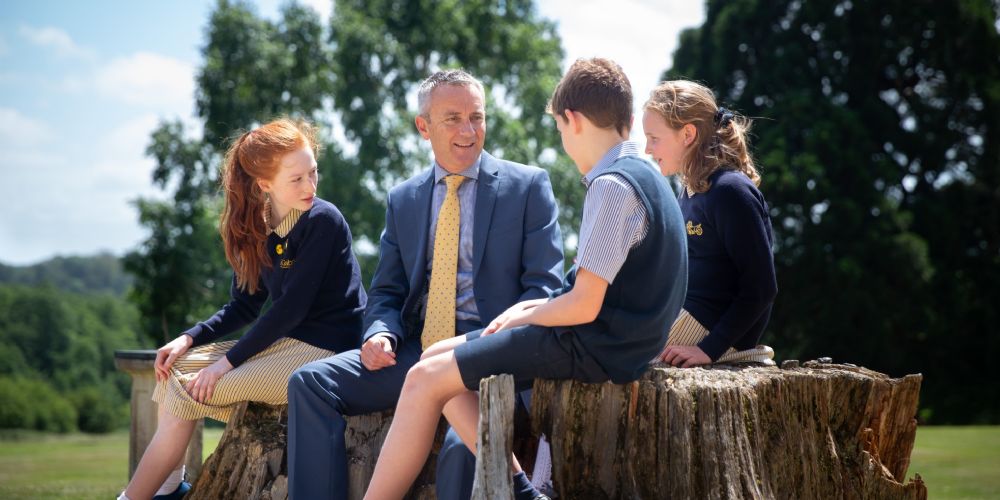
Religion, Philosophy & Ethics
The content of Religious Education lessons is based upon an understanding of Christianity and other major world religions. Trips to sites of worship help develop respect and empathy for their place within a multi-faith society. Children begin to study philosophers, such as Aristotle, to make the link between religious and secular schools of thought. In addition to this, children begin to look at wider ethical questions, such as concepts of beauty, marriage, and death. Children also learn the skill of debating to help them explore and more fully understand challenging issues that surround us in the world today, such as animal experimentation. The skill and confidence to debate and form their own opinions on topics in higher Key Stage 2 helps to prepare them for a world that is forever changing.
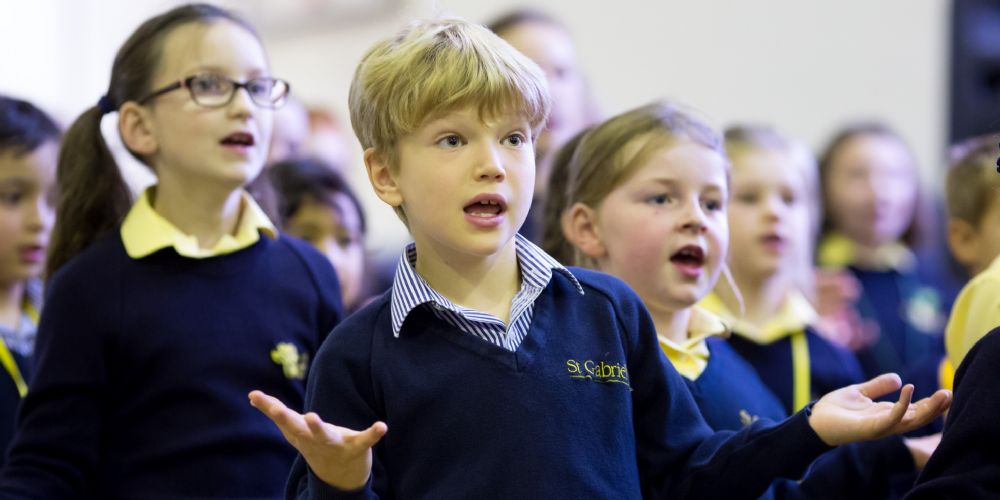
Science
In Year 1 and Year 2, the emphasis in Science is to tap in to the children’s natural curiosity. Lessons involve a great deal of observation, discussion and practical investigation. Simple experiments are carried out and children are encouraged to explain their findings to their friends.
From Year 3, Science is taught by specialist teachers in both the form classroom and Junior Science. The emphasis is on enthusing our pupils with a love for learning about science. Each year, the children run their own scientific investigations focused around the topics that they are covering at the time.
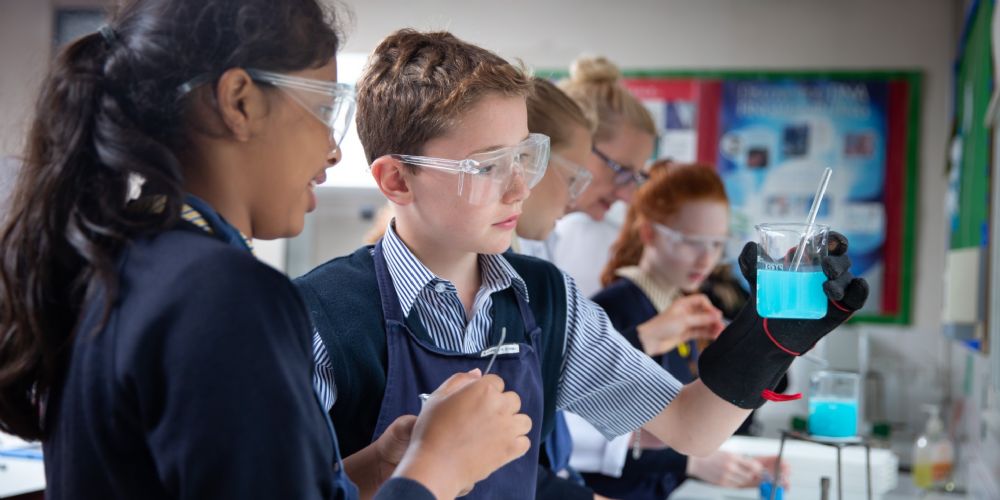
Thinking Skills
Weekly lessons in Thinking Skills aim to develop pupils’ understanding of their own abilities and learning styles via the Multiple Intelligences approach of Howard Gardner. Mind-mapping, lateral thinking, problem-solving and reasoning are also components of our interactive curriculum.
